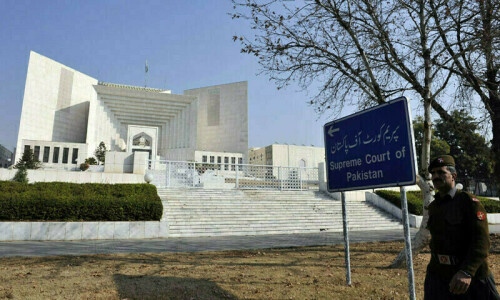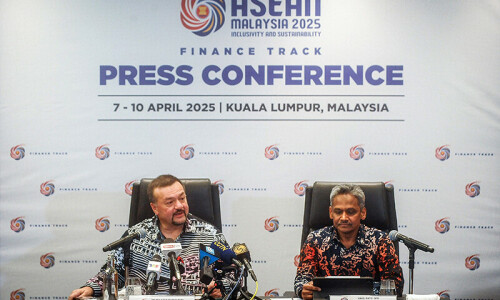ISLAMABAD: Though relations between the two countries had gone through a historic change since the inception of China-Pakistan Economic Corridor (CPEC), bloc politics may impact steadiness in the flow of relations between Pakistan and China.
CPEC which is the flagship project of China’s Belt and Road Initiative (BRI) aims to alleviate the socio-economic woes of Pakistan.
This was highlighted by Dr Fu Xiaoqiang, vice chancellor of China Institute of Contemporary International Relations (CICIR) during a virtual conference. It was jointly organised by CICIR in collaboration with Institute of Strategic Studies Islamabad (ISSI).
ISSI Director General Aizaz Chaudhry was on the same page regarding the dangers of bloc-politics. Touching upon the recent war in Ukraine, he was of the view that the military escalation should be put to an end.
In the first session titled ‘Global and Regional Impacts of Ukraine Crisis’ Dr Shang Yue deputy director (Institute of Eurasian Studies, CICIR) maintained that the crisis marked the end of Russia’s quest of its rightful place in Europe and, with its bold move, Moscow had challenged the global supremacy of United States.
Dr Sameera Imran who is an assistant professor at National Defence University (NDU) argued that the Ukrainian invasion had worsened the condition of food security in post-pandemic South Asia.
Dr Hu Shisheng said that the global financial situation was worse due to severe imbalance in payments and disruption in the supply chain. Countries that had cordial relations with Russia were in a tight spot, the speaker said, adding, “For instance, India is heavily dependent on Moscow for its arms supply and not following the US lead, would get New Delhi in trouble. The developing countries will bear the brunt of Russo-Ukrainian military escalation.”
In the second session titled ‘Review and Prospect over the Situation in Afghanistan’, Dr Yan Shuai said after the Taliban took over Kabul, the security environment improved overall.
However, it was still a fertile ground for terrorist organisations and in order to remain credible, the Taliban would have to comply with international norms and present a moderate face, he added.
ISSI Amina Khan opined that the Taliban government was confronted with a myriad of challenges right now and the biggest ones were the non-existent economy of the country and weak institutions.
Unless the financial situation in the country improved, Afghanistan would remain a breeding ground for terrorist organisations.
Dr Wang Shida touched upon the humanitarian crisis in Afghanistan and said that Chinese aid came in the form of food assistance and help in the facilitation of land routes and air corridors for providing humanitarian assistance to war-stricken people.
Dr Talat Shabbir offered a comprehensive view of the situation in Afghanistan emphasising upon employing a consolidated regional approach towards Kabul.
Published in Dawn, April 8th, 2022














































